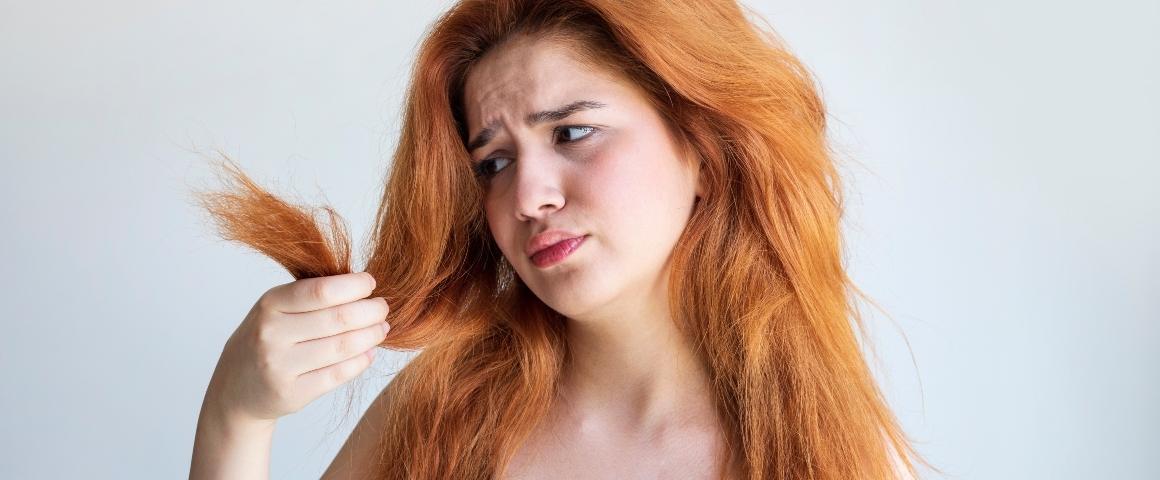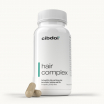Foods that cause hair loss: A list of 11 foods to avoid
Published:
Experiencing excessive hair fall? Your diet could be to blame. Certain foods can worsen hair loss and damage hair health. This article discusses foods that cause hair loss and lists 11 foods to avoid for healthy hair.
Contents:
- Outline
- What Causes Hair Loss?
- How Does Diet Impact Hair Health?
- List of 11 Foods That Can Cause Hair Loss
- Tips to Prevent Hair Loss Through Diet
- Key Takeaways
- What are foods that cause hair loss?
- Can diet and hair loss be related?
- Are there specific foods to avoid for healthy hair?
- What is the impact of unhealthy foods on hair health?
- Can specific foods cause hair fall problems?
- Are there any foods that are bad for your hair?
- Can a poor diet lead to hair thinning?
- Can the nutrition of women with hair loss be improved through diet?
- Do foods that may cause hair loss affect everyone the same?
- What are some foods that are beneficial for hair health?

Hair fall is a common problem faced by many. However, excessive hair loss can be worrying and negatively impact one's self-esteem. While factors like genetics, stress, hormonal changes and damage due to hair treatments play a role, diet also influences hair health and hair fall. Eating nutrient-rich foods is key for lustrous hair, while some foods can worsen hair loss. Read on to learn which foods to limit or avoid if you're struggling with hair loss.
Outline
- What causes hair loss?
- How does diet impact hair health?
- List of 11 foods that can cause hair loss
- Sugary foods
- High sodium foods
- Fried and processed foods
- Alcohol
- Caffeine
- Trans fats
- Foods with high glycemic index
- Dairy products
- Red meat
- Foods high in mercury
- Gluten
- Tips for preventing hair loss through diet
- Key takeaways
What Causes Hair Loss?
Hair loss can occur due to various reasons including:
- Genetics and hereditary factors
- Hormonal changes and imbalance - due to menopause, childbirth, thyroid issues etc.
- High stress levels
- Insufficient nutrient intake
- Use of wrong hair care products and treatments
- Certain medications and medical conditions
Dihydrotestosterone (DHT), a byproduct of the male hormone testosterone, also leads to hair follicles shrinking and hair fall.
While genetics and hormones play a major role, poor diet and nutrition can worsen hair loss in some cases.
How Does Diet Impact Hair Health?
The foods you eat affect hair health and growth. Here's how:
- Certain nutrients like proteins, vitamins A, C, D, E and minerals like iron, zinc and selenium promote hair growth. Not getting enough of these through diet can lead to increased hair fall.
- High-glycemic foods can increase inflammation and oil secretion in hair follicles, leading to hair damage.
- Foods high in trans fats, sodium and sugar cause inflammation which restricts blood supply to the scalp and stunts hair growth.
- Dairy and high-mercury seafood can affect hormone levels, contributing to hair loss in some cases.
- Some foods like gluten can trigger autoimmune responses which cause excessive hair shedding.
Overall, getting good nutrition with hair-healthy foods is key for reducing hair loss, while limiting or avoiding certain foods can prevent dietary triggers for excessive hair fall.
List of 11 Foods That Can Cause Hair Loss
Here are some of the key foods that can damage hair health and potentially lead to increased shedding when consumed in excess:
1. Sugary foods
Sugary foods like candies, sodas, desserts and processed snacks can spike blood sugar levels and inflammation, restricting hair follicle growth. The inflammation can damage follicles and glands, leading to hair fall. High glycemic foods also increase dihydrotestosterone (DHT) production, which shrinks hair follicles. Limit sugar and aim for complex carbs for hair health.
2. High sodium foods
Excess sodium intake can lead to dehydration and poor blood circulation to hair follicles. It also increases inflammation. Avoid processed and canned foods, chips, pickles etc. to reduce hair fall caused by high-salt foods.
3. Fried and processed foods
Fried foods and processed meats are high in trans and saturated fats which can clog follicles. They also often contain preservatives like sulfites which some people are sensitive to. These foods can increase inflammation and oiliness in the scalp, damaging hair and promoting hair fall.
4. Alcohol
Alcohol dehydrates the body and can deplete protein, zinc and other nutrients essential for hair growth. Excessive alcohol and drinks high in congeners result in inflammation and damage to hair proteins, thinning hair over time. Limit alcohol and drink plenty of water to prevent hair loss.
5. Caffeine
Excess caffeine consumption through coffee, energy drinks and soda can dehydrate the body and interfere with absorption of nutrients like iron. Caffeine also impacts hormone levels for some, raising DHT and leading to hair shedding. Have no more than 2-3 cups of coffee a day.
6. Trans fats
Trans fats like partially hydrogenated oil are often added to fried and processed foods to increase shelf life. They increase inflammation which can restrict blood and oxygen supply to hair follicles, inhibiting growth. Avoid trans fats by reading food labels.
7. Foods with high glycemic index
Simple carbs and high glycemic index foods like white rice, white bread and potatoes quickly spike blood sugar. This can increase inflammation and oil production, damaging hair follicles. Focus on low glycemic foods like non-starchy veggies, legumes and whole grains.
8. Dairy products
Dairy can worsen hormonal imbalance and increases levels of insulin growth factor 1 (IGF-1), contributing to hair loss in those sensitive. Some studies also link dairy to increased DHT. Limit milk, cheese and other dairy products if you have hair loss.
9. Red meat
There is some research indicating red and processed meats may contribute to hair loss due to saturated fats, hormones and preservatives used. Red meat also boosts IGF-1 levels for some. Limit intake of beef, pork and other red meats to less than twice a week.
10. Foods high in mercury
The mercury in large, predatory fish like tuna, shark and swordfish can contribute to autoimmune conditions that cause hair loss. Oily fish also contain high vitamin A levels which some link to hair loss at excessive levels. Avoid high-mercury fish and limit oily fish intake.
11. Gluten
Gluten can trigger inflammation, autoimmune reactions and vitamin deficiencies for sensitive individuals which can lead to excessive shedding. If you have an autoimmune condition or are gluten-intolerant, a gluten-free diet may help minimize hair loss.
Tips to Prevent Hair Loss Through Diet
Here are some tips to nourish your hair and minimize hair fall through diet:
- Eat more protein-rich foods like eggs, nuts, seeds, beans and seafood. Protein is essential for hair health.
- Get enough iron, zinc, vitamins A, C, D and B-complex vitamins through diet and supplements if deficient.
- Increase intake of nuts, avocados, olive oil and other foods with omega-3 fatty acids to reduce inflammation.
- Choose anti-inflammatory spices like turmeric, ginger and garlic to boost hair growth.
- Drink plenty of water to hydrate the scalp and prevent hair follicles from clogging.
- Reduce sugary treats, salty snacks, fried foods and alcohol which can contribute to poor hair health.
Key Takeaways
- Hair loss can be worsened by nutritional deficiencies, inflammation, hormonal fluctuations and other factors that diet influences.
- Sugary foods, sodium-rich foods, fried foods, caffeine, alcohol, trans fats and high glycemic index foods can damage hair follicles.
- Dairy, gluten, red meat and mercury-laden fish may also contribute to hair loss in sensitive people by impacting hormones.
- Eat more lean proteins, omega-3s, iron, zinc and vitamins A, C, B complex and D through food and supplements to nourish hair.
- Limit inflammatory foods like sugar, caffeine, alcohol and saturated fats that affect hair growth and increase shedding through diet.
A balanced, hair-healthy diet with antioxidant-rich fruits and vegetables can reduce hair fall while avoiding dietary triggers of excessive hair loss is also important. Speak to a doctor or dietitian if hair loss is severe. With the right diet and reduced consumption of foods that damage hair, your hair loss can be minimized for better hair health.
What are foods that cause hair loss?
Foods that cause hair loss are those that may contribute to hair fall, worsen hair loss, or lead to hair thinning. These foods may include high-sugar foods, processed foods, fast foods, and foods high in saturated fats.
Can diet and hair loss be related?
Yes, there is a connection between diet and hair loss. A poor diet lacking essential nutrients can cause your hair to become weak, brittle, and more prone to falling out. On the other hand, a balanced diet rich in vitamins, minerals, and proteins can promote healthy hair growth.
Are there specific foods to avoid for healthy hair?
Yes, there are certain foods that you should avoid if you want to maintain healthy hair. These foods include sugary snacks, processed foods, deep-fried foods, excessive alcohol, and foods high in saturated fats.
What is the impact of unhealthy foods on hair health?
Unhealthy foods can have a negative impact on your hair health. They can deprive your scalp and hair follicles of the necessary nutrition, leading to hair fall problems and even hair loss in some cases.
Can specific foods cause hair fall problems?
Yes, certain foods may cause hair fall problems. Examples include foods that are high in sugar, excessive caffeine, refined grains, and high-fat dairy products. These foods can contribute to hormonal imbalances and inflammation, which can trigger hair fall.
Are there any foods that are bad for your hair?
Yes, there are foods that can have a detrimental effect on your hair. Some examples include sugary drinks, processed snacks, fast food, excessive salt, and foods high in trans fats. These foods lack essential nutrients and can weaken your hair.
Can a poor diet lead to hair thinning?
Yes, a poor diet lacking in essential nutrients can contribute to hair thinning. Protein deficiency, for instance, can weaken hair strands and make them more susceptible to breakage, leading to thinning hair.
Can the nutrition of women with hair loss be improved through diet?
Yes, improving nutrition through diet can have a positive impact on women experiencing hair loss. Consuming a balanced diet that includes foods rich in vitamins, minerals, and proteins can help support hair growth and strengthen the scalp and hair follicles.
Do foods that may cause hair loss affect everyone the same?
A: The impact of foods that may cause hair loss can vary from person to person. While some individuals may experience hair loss or thinning due to certain foods, others may not be as affected. Factors such as genetics, overall health, and lifestyle play a role in how different people respond to these foods.
What are some foods that are beneficial for hair health?
Some foods that are beneficial for hair health include fruits and vegetables rich in vitamins A, C, and E, lean proteins such as fish and poultry, nuts and seeds containing omega-3 fatty acids, and whole grains providing essential nutrients for hair growth.














